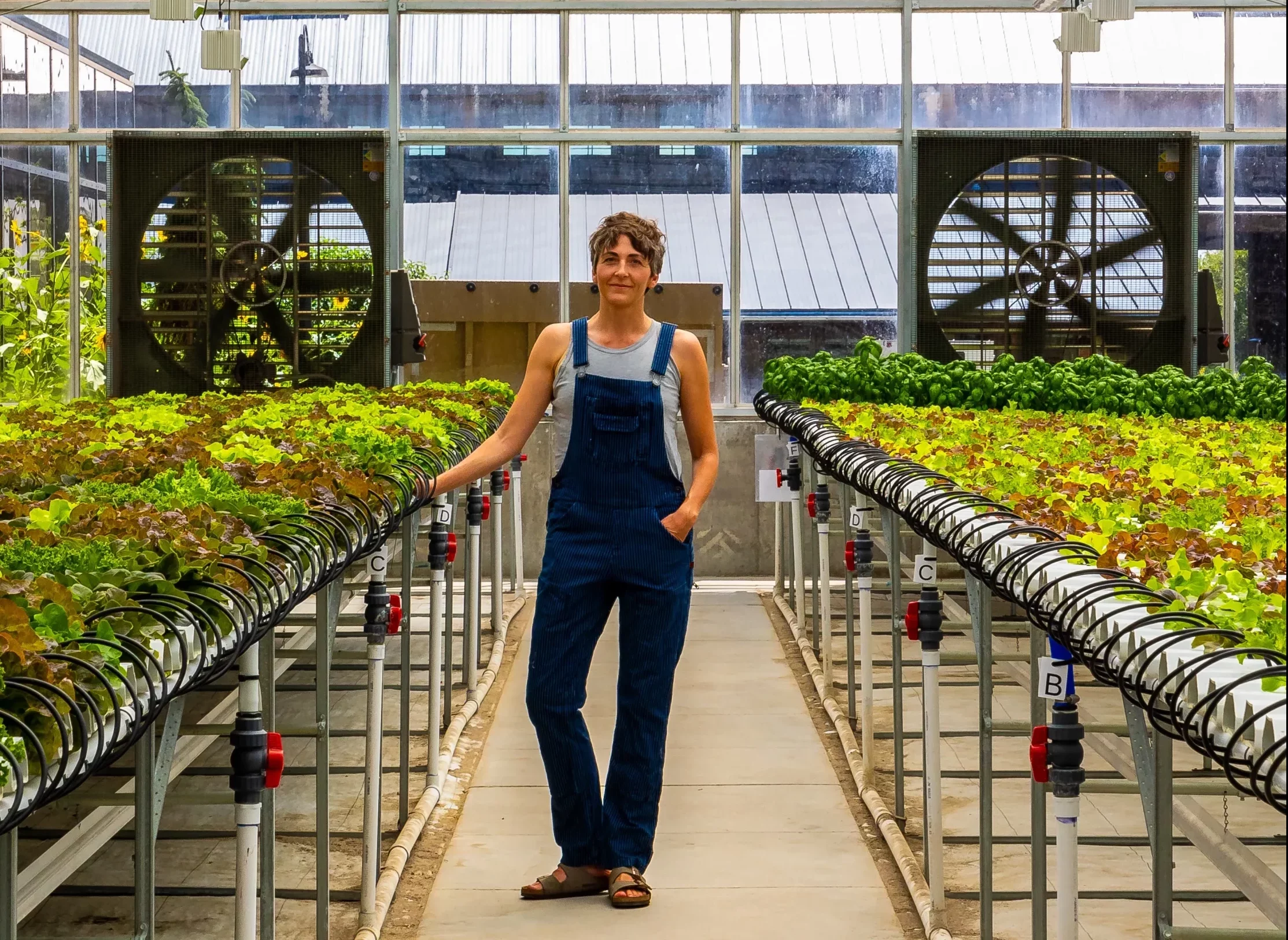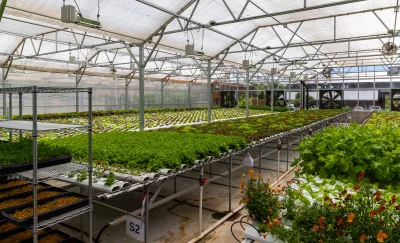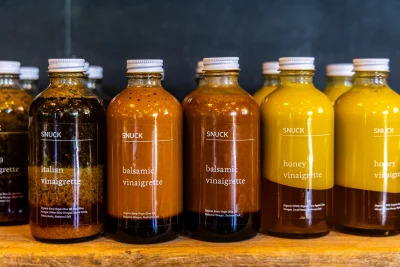
Cultivating Community with Snuck Farm
Community
Nestled within the neighborhoods of small-town Pleasant Grove, Utah sits Snuck Farm, a family-operated farm that was first settled in the 1800s. Since then, it has grown into a larger, local-centric organization that promotes food-based education, sustainability and community. Fronted by a quaint farmshop and a fenced-off plot of land housing chickens, alpacas and Moby the Great Pyrenees farm dog, Snuck Farm is easy-to-miss, and yet, once you’ve experienced their hospitality and delicious mixed greens, you’ll find yourself returning again and again.
Page Westover is the Chief Cultivation Officer at Snuck Farm, a self-given title she feels is fitting because she’s in the business of both cultivating produce and cultivating an experience for Snuck team members to enjoy. “My grandpa had passed away … and I was interested in doing something with this piece of land,” Westover says. “I was attached to it, and Utah County doesn’t have a lot of these kinds of places. It was all ready for quarter-acre home sites, but we decided to build this community farm instead.”

“My grandpa had passed away … and I was interested in doing something with this piece of land.”
Though its roots as a family farm carry back to Westover’s grandfather—whose nickname was “Snuck” due to his prankster tendencies—Snuck Farm opened for business in 2015 with an emphasis on community growth. Due to Snuck’s location, smaller acreage size and Utah’s drought-prone climate, the farm uses both hydroponic (a system that continuously recycles nutrient-dense water) and soil-grown methods. With a desire to create a sustainable business—one that is focused on people and the planet as well as profit—Westover notes that the choice for hydroponic growing made sense for their economic and community-minded goals considering the process is water efficient and allows for more growth per square footage than soil would offer. “We wanted to feed as many people as we could on this little piece of land,” she says. “All of our greens, kale, arugula and basil are grown hydroponically.”
“I was attached to it, and Utah County doesn’t have a lot of these kinds of places. It was all ready for quarter-acre home sites, but we decided to build this community farm instead.”
Snuck’s two main greenhouses house their produce year-round. One is home to the hydroponically grown items, such as all of their greens and raw produce, while the other contains their soil-grown produce such as tomatoes, cucumbers, beets and radishes. From December to May, Snuck also uses their greenhouse to produce flower plugs for local flower farms. While their flower starts are just one of the ways Snuck focuses on prospering community and relationships between local farms and businesses, Snuck is also a part of a Farmyard Share program that partners with surrounding farms such as Carter’s Family Farm and Quail Creek Farm to bring locals a robust variety of fruits and vegetables.

Beyond buying delicious, raw produce through Snuck’s Farmshop, you can also pick up bottles of housemade vinaigrette, vibrant-green jars of pesto or energizing pressed juices among other items that are crafted in the Snuck Kitchen. The Kitchen’s in-house chef Bri Sykes also helps to create a rotating menu of filling salads, sandwiches and wraps that can be purchased through their farmshop. While browsing through the shop, you can also pick up crafts and goods from local artisans and produce from other farms.
“We wanted to feed as many people as we could on this little piece of land … All of our greens, kale, arugula and basil are grown hydroponically.”
“Rather than being the authority and the person that’s doing everything, we see the value in spreading out our sources,” Westover says. “Our mission is to elevate the health of our community … farm-to-table means knowing what’s available and showing up and making the effort to source and visit from a farm. It’s very intentional, and that’s where the magic happens.”
While Snuck specializes in sustainability and nutrition, they also believe in meeting people where they’re at, which is why they offer a number of farm-related classes and workshops for all skill levels. Whether it’s planting and growing your own row of flowers, learning from their in-house chefs about seasonal eating or taking a class on Italian breads, tea-blending or crafting your own charcuterie board, Snuck Farm believes that community prospers from within.
You can buy from Snuck Farm through the Snuck Share subscription program on their website snuckfarm.com or stop by the farm and experience their farmshop in person.
Read more home-grown foodie stories from the SLC community:
Salt Smith: DIY Festival Craft Food
A Dang Good Review of Dang Brothers Pizza